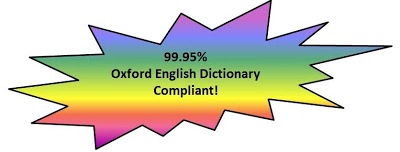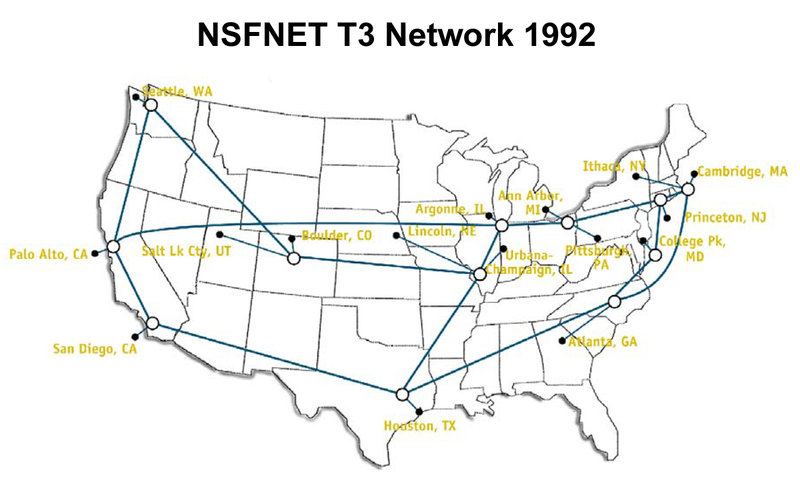I sometimes have a hard time titling my posts. Today’s was easy because I’m taking you back to the world of Twitter, and pretty much anyone in the Eastern part of North America is wishing for Spring. Hell, we’re practically begging for it. That first robin sighting will be a monumental event, and what do robins do? They tweet. At least the rockin’ ones do if you believe the Jackson 5.
Okay, that’s enough of an explanation as to how I got the title for the post. Now on to the content!
Way back in May/June of 2011 I wrote a series of posts centred around social media – specifically Twitter. I had been on Twitter for a few years by then and still hand’t quite figured it out.
- More Than Tweets The Eye (wherein I have my “a ha!” Twitter moment and you sing the Transformers theme song)
- Proximity to Greatness = Effective (wherein I discovered one of the keys to successful Twittering)
- The Sum of All Parts (wherein I use a series of 140 (or less. Fewer?) character sentences to highlight how Twitter can help your writing)
In all of this, however, I neglected to get to the actual key to Twitter effectiveness. Engagement. Now, in my defence, I was new. I was still amassing followers and followings. It wasn’t until I was following close to 500 people that I began to realize that the Twitter sea could be a cold and lonely (and useless) place unless you had some sort of system. So, I started using lists.
- Making a List (wherein I explain my system and how I use it)
I had thirteen lists then. Today I have seven (including a mysterious “People Not in a List” list). A couple of familiar lists are still kicking around: “Writing” and “Community”, and yesterday I made a few observations:
111 accounts on my “Writing” list. Only @HemingwayApp @Booktrope @DougCoupland @ChuckWendig @ThatKevinSmith not following me. Interesting.
— Andrew F. Butters (@andrewbutters) February 21, 2015
Also: 22% of who I’m following is in my writing list yet those are 80% of my feed at any given moment. Most common: links to their books.
— Andrew F. Butters (@andrewbutters) February 21, 2015
These observations are leading up to a htp://potatochipmath.com post tomorrow about engaging with people on Social Media
— Andrew F. Butters (@andrewbutters) February 21, 2015
So, I’ve covered how I got the title of this post, and now I’ve explained how I came to arrive at this topic for this week. I suppose the only thing that’s left is to get to the point.
The first observation was interesting because I don’t tend to pay attention to who’s following me (which is a partial lie because when I made this writer following-to-followed comment a couple years ago Margaret Atwood started following me on Twitter and to this day it makes me absolutely giddy). I find it interesting because I find writers are great at reciprocating the Twitter follow, more so than any other group of people, I think.
I started thinking about why that would be when I came across my second observation: self promotion. Look, I get it. We’re all trying to sell stuff, and with the state of publishing and self publishing being what it is competition is at an all-time high and royalties are at an all-time low. The problem I see with this is that it’s an awful lot of noise.
I don’t know about most people but I follow an awful lot of writers, most of them not well known, so I’m not sure the average Twitter user has the same view of things. One thing I do know though is that I’m way more likely to re-tweet or comment (engage!) when someone’s stream isn’t just a a constant flow of “Look at me! Look at me! Look at me!” Naturally, unless Tweeting is your full time job you can’t respond to everyone all the time – that’s just not a sustainable practice. You can, however, take a good look at who you’re following and what those people have to say and find out where you can add value to that conversation.
Hey, I’ve certainly been guilty of shameless self promotion on Twitter. If you were to check out my feed from the last year and a half you’ll see mostly links to photographs I took or blog posts and very little “other” stuff. It sucks, and I’m not proud of it. Which was my third observation, and the reason for this post. Now that my life is settling back into somewhat of a normal routine, I started thinking about how I wanted to start engaging more on Twitter and get back to the good old days when it was entertaining and informative. I hope you’ll all join me.
Finally, and this is probably the most important thing you’ll read all day:
Don’t be an asshole.
It’s Oscar night and three years ago a friend and well respected member of the Toronto media, Neil Hedley, had some words for people tweeting insulting and bullying bullshit about movie stars on the red carpet at the Oscars. I wrote a post about thinking before you tweet that was well received. Last year a few actors even did a parody sketch on this as part of the opening segment. Regardless of how many people point out that slamming an actress for her body image amounts to bullying (and generally being an asshole) there will still be throngs of people who do it. Don’t be one of them.
~ Andrew




